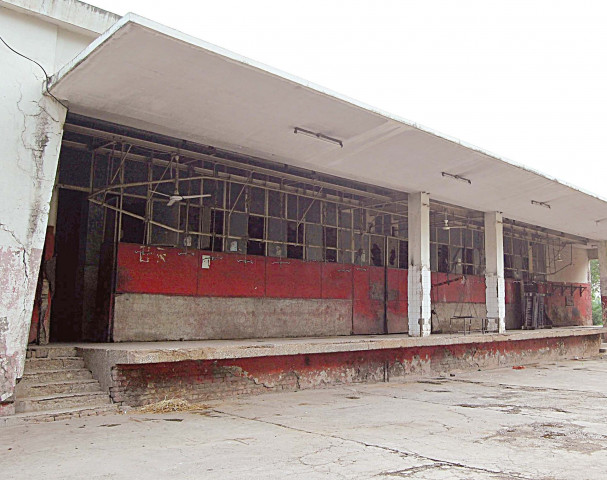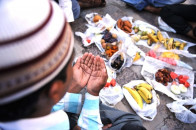Where’s the beef: Without a slaughterhouse, clean meat a promise incomplete
For the past 40 years, the butchers of Islamabad do not have access to a real slaughterhouse.

For the last 44 years, the butchers of the capital have been waiting for a slaughterhouse of their own. The lack of a slaughterhouse means that they have to slaughter the animals in their shops or on an empty plot.
The quality of the meat and the cleanliness of areas where the animals are slaughtered, are both compromised in the process, meaning that consumers are also affected by the extended delay in construction of a purpose-built facility.
A slaughterhouse spreading over 17 acres was constructed at Sihala in 1967. On average, 500 to 600 animals are slaughtered here, but the facility caters only to the population of Rawalpindi. Despite various Capital Development Authority (CDA) and Islamabad Capital Territory initiatives, a place for butchers to conduct their business in a streamlined manner is yet to become a reality, said an official.
Presently, there are 620 butcher shops in the city, catering to a population of over 1.5 million. As the authorities seemingly remain oblivious to the growing demands of an ever-increasing population, the business of privately slaughtering animals has registered a sharp increase in the rural areas of the capital. Bhara Kahu, Golra, Koral, Rawat, Malpur, Phulgran and Tumair union councils, among others, remain vulnerable to the sale of unhygienic and unsafe-for-consumption meat in their commercial vareas. Recently, several butchers were even apprehended in Tarlai for selling unhealthy meat. A government official said, “The meat from a government slaughterhouse is stamped. It is safe for eating and the consumers are also sure of the quality.”
“The problem with meat at shops in the capital is that consumers are always insecure about how hygienic the commodity is,” he said. As health experts warn against consuming such meat, “a slaughterhouse is a good way to solve this problem,” he added.
Jamiatul Quresh Welfare Association President Khurshid Ahmed Qureshi admitted to the increased practice of private slaughtering in different parts of the city. However, he held the city authorities responsible for not establishing slaughterhouse to address the matter.
“This illegal practice will continue if the government does not address the matter. What other option do butchers have to continue their business?” he said.
The civic agency had proposed a slaughterhouse in sector H-9/3 two years ago. Around 20 acres in the sector, along with many butchers in the city, have been waiting for the project ever since. CDA Spokesperson Ramzan Sajid said, “We have shortlisted the proposals of 10 interested firms. After the completion of the process, work will begin soon.”
“The slaughterhouse might be operation in October,” he added.
On the other hand, an official told The Express Tribune that the CDA is interested in handing over the entire project to Jamiatul Quresh Welfare. He said the slaughterhouse will be constructed on a build-operate-transfer basis, with the winning firm having to finance, design and construct the facility.
Published in The Express Tribune, August 10th, 2011.



















COMMENTS
Comments are moderated and generally will be posted if they are on-topic and not abusive.
For more information, please see our Comments FAQ